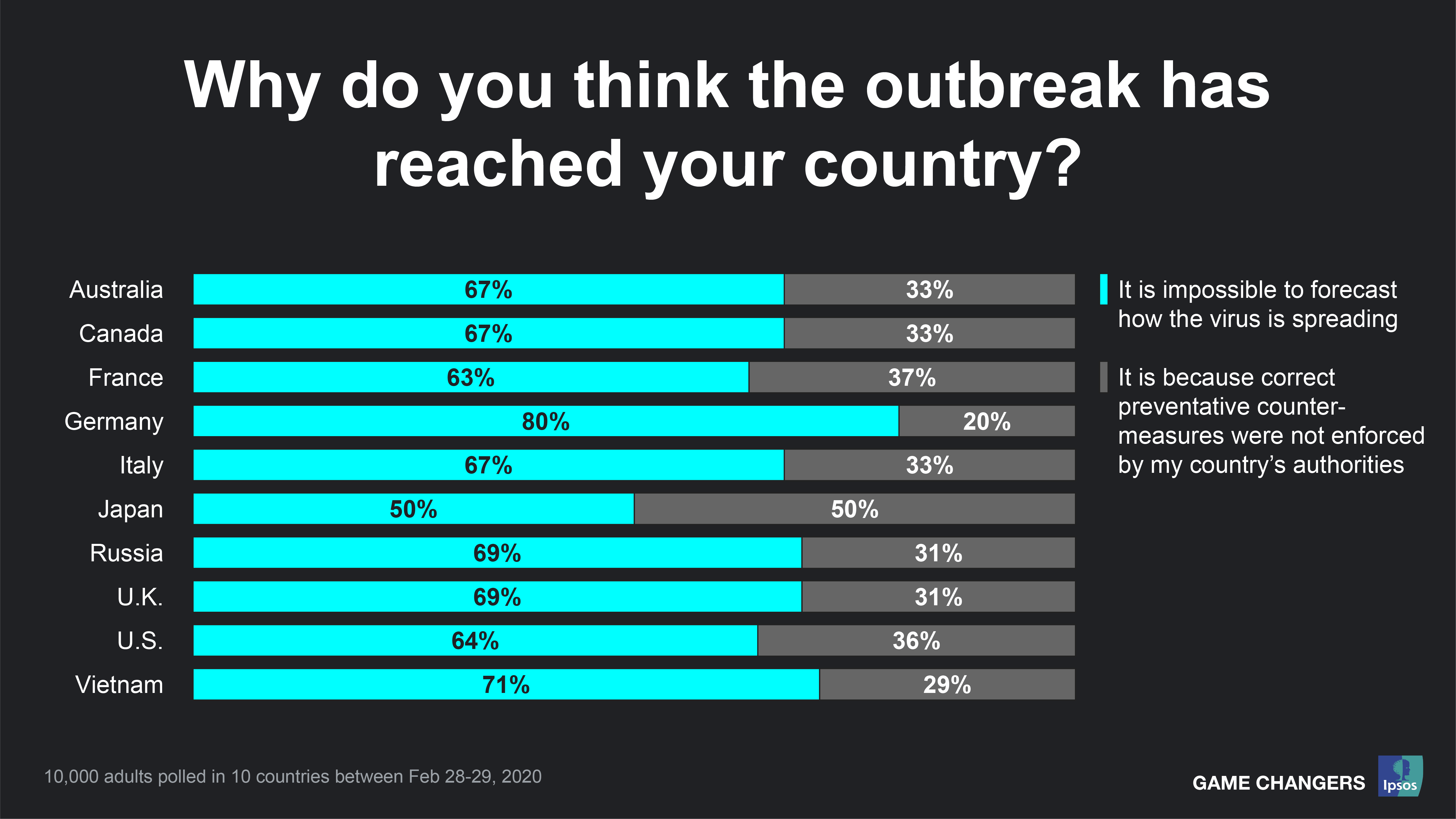Rising concern that the Coronavirus will have a personal financial impact and poses a high threat to their country
 In an Ipsos poll conducted across 10 large countries on February 28 and 29, there is a significant increase in the number of people who believe the virus will have a personal financial impact compared to a poll conducted on February 14 and 15.
In an Ipsos poll conducted across 10 large countries on February 28 and 29, there is a significant increase in the number of people who believe the virus will have a personal financial impact compared to a poll conducted on February 14 and 15.
Italy sees the biggest jump on this measure with a 22-point increase – taking the number of those worried about the impact on their finances to two in five people (41%). There are also double-digit increases in Canada (+20), Russia (+19), Japan (+18) the United States (+16), United Kingdom (+16) and France (+14). Vietnam was only measured in the latest wave and top the level of concern with 78%.
|
Australia |
Canada |
France |
Germany |
Italy |
Japan |
Russia |
United Kingdom |
US |
|
|
Feb 28-29 |
40% |
37% |
22% |
19% |
41% |
56% |
40% |
32% |
37% |
|
Increase from Feb 14-15 |
+13 |
+20 |
+14 |
+8 |
+22 |
+18 |
+19 |
+16 |
+16 |
When asked why the virus has reached their country, majorities in each market believe this is because it is impossible to forecast how the virus will spread, rather than due to a lack of preventative action by government authorities. Those in Germany (80%) and Vietnam (71%), but also in the UK (69%), Canada (67%) and France (63%) are most likely to perceive the virus as impossible to forecast. In return the perception that the arrival of the virus is due to a lack of preventative countermeasures by authorities is lower in most countries. Japan stands out being split between the two positions and hence the most critical about countermeasures and the least convinced it is impossible to forecast (50% / 50%).

The survey also shows a general rise of the proportion who believe the virus poses a high or very high threat to their country. France saw the biggest increase on this measure at 49%, a 29-point increase from two weeks ago. Japan is ranking the highest on this measure (65%) followed by Vietnam (63%) while the lowest remains Canada (21%).



